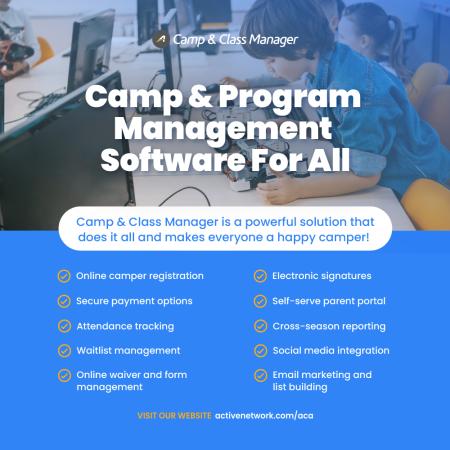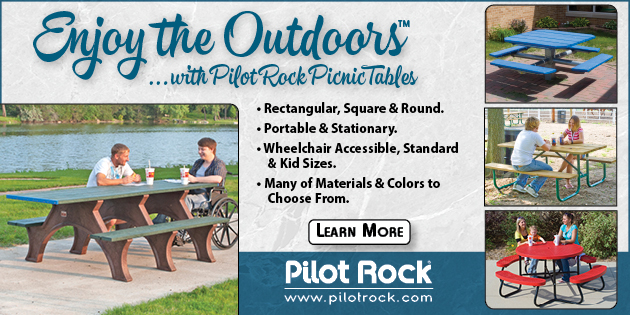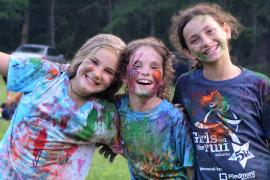If you’ve been thinking about adding behavioral or mental health supports to your program, you’ve also probably realized that the devil is in the details. Supporting mental, emotional, and social health (MESH) needs at camp is a concept we can all get behind. But it’s hard to know where to start when addressing concerns that feel big and intangible and encompass everything from a camper having a rough day to a staff member who consizders ending their own life.
While MESH and behavioral supports have been a “hot topic” for the better part of a decade now, the pandemic kicked these needs into the stratosphere. When reviewing the camp experience in recent summers, industry professionals lament the seeming explosion of aggressive behaviors, the increase in presentation of anxiety and depression among campers and staff, and the effect these and other MESH issues are having on their experience.
According to the Centers for Disease Control and Prevention (CDC)’s Youth Risk Behavior Surveillance Data Summary & Trends Report, in 2019, approximately one in five youth reported seriously considering attempting suicide in the past year, a 44-percent increase from just one decade earlier. More than one in three high school students — and nearly 50 percent of female-identifying students — reported persistent feelings of sadness or hopelessness. Now, three years into a pandemic that has caused staggering mental health ramifications, these high school students are our staff.
As an industry, we know that integrating social-emotional learning, training staff, supporting mental health, and building safe and supportive environments are all critical to ensuring well-being for youth (CDC, 2020). In a reflection on her role as a camp psychologist, Marisa Mahler, PsyD, asked, “What if having a camp psychologist was given the same priority as having a camp doctor? Most parents expect for there to be a camp doctor or nurse and are comforted by having a medical professional on site. It wouldn’t (and shouldn’t) be acceptable to simply have a first aid kit on hand. Yet when it comes to issues regarding mental health, the same attention is not given” (Mahler, 2018).
When Dr. Mahler wrote her article in 2018, that was certainly the case. In the intervening years, significantly more camps have assessed the need for, and begun implementing, mental health supports. But exactly which supports are needed — and which can be supported within the budget or appropriately staffed — remains a challenge. How do we, as camp professionals and not mental health experts, determine the approach(es) that will work? Conducting a needs assessment is an accessible, tangible first step.
Step 1: Needs Assessment
Determine whether you are seeking supports for campers/participants, staff, or both.
When determining need for supports through a camper/participant lens, ask yourself these questions:
Are the MESH needs you are seeing in camp causing staff stress?
If your staff team is competently and efficiently managing these behaviors/needs, then they may not require extra supports. Consider focusing instead on staff appreciation and in-service learning/advanced training opportunities to enhance the team you currently have.
Are these behaviors/needs pulling staff out of their roles?
For example, is someone who should be focused on teaching art having to abandon their lesson plan to support behavior rather than provide instruction? Is your assistant director leaving piles of critical tasks incomplete because they are consistently being called to diffuse issues? Whether or not the situation is causing staff stress, if it is pulling them away from their core work on a routine basis, you might need some extra hands to help handle the load.
Are the changes you’re asking staff to make sustainable?
It’s one thing to ask someone to put aside their expected workload to support a camper through a short-term difficulty. It’s another thing to find yourself short a logistics coordinator who is supposed to be managing your daily fleet of 40 buses because they’ve been pulled out of the office to be in-ratio for a camper group that’s falling apart. Similarly, asking staff to go “above and beyond” to help a participant experience success, such as getting them through their one registered week of camp, is a very different thing than asking staff to continuously handle outlying behavior issues day in and day out over a nine-week summer.
Can these issues be addressed with structural or ratio change?
If camper population shift is contributing to the challenges, look at what adjustments you’ve made to program elements to accommodate the changing landscape of campers’ needs. What worked years ago may not work today. If behavior is coming from an exhausted group of kids whose stamina simply is different than past generations, shifting to lower-key afternoon activities or adding optional rest times could significantly reduce problems. Additional staff are not the best solution for every problem.
When determining need for supports through a staff lens, ask yourself these questions:
Are your health-care personnel overwhelmed with staff needs?
Are they seeing increasing numbers of staff requesting help for psychosomatic issues, adjustment concerns, anxiety, or panic attacks? What percent of time do you budget for health personnel to manage staff needs compared to camper needs, and what are they actually using? (The same question could be asked for campers, as well: how much of what the health team has to manage is MESH vs. medical need?)
Are staff departing early in higher numbers than in the past?
The industry faces hiring hurdles beyond anything we’ve seen in the past, and there are many possible reasons why staff may not make it the full season. For the purposes of this assessment, try to identify if having had access to additional support along the way would have changed the outcome of any of your early departures.
How is staff morale? Does staff appreciation seem ineffective?
The ultimate impact of staff appreciation varies for several reasons. (If it’s “mandatory attendance/enforced fun” during otherwise-scheduled time off, it’s not appreciation!) The reason we’re most concerned about this is that appreciation may be ineffective because it isn’t what’s needed — rather, interventions are called for. MESH supports cannot be interchanged with appreciation events. While such activities and events are an important part of your efforts to support staff across the board, if they are in need of therapeutic supports, a pizza party simply won’t cut it.
Does leadership report having a lot of “concerning discussions” with staff? And is this draining their own reserves?
Part of being on leadership staff at camp is supervising and supporting staff, so it’s realistic and expected that there will be times over the summer when staff will need to vent, to be heard, to discuss difficulties they are having, and to brainstorm solutions. The challenge comes when leadership’s available time is disproportionately being used as an amateur therapist. (This is a bad idea on many levels.) Some leaders thrive on this kind of relational leadership; others find it soul-sucking and a hindrance to their ability to be effective in their actual role. One of the fastest ways to burn out good leadership staff is to push them beyond their true capabilities and cause them to feel responsible for the results — for example, asking them to do their best to be the camp social worker when nothing in their training has prepared them to do so.
Step 2: Identify Ideal Supports
Using the information you’ve gathered, review your camp’s potential MESH roles and identify one or more that addresses your identified needs. Table 1 offers five major options for support roles. (Note: every camp and program is different, so these options for support roles are going to be generally applicable, though your local lingo may vary. For example, the idea of a camp “social worker” may have a different connotation based on the camper population served, and licensure titles may be different state to state.)
Table 1: You May Need a(n) ___ When . . .
|
Support Counselor |
Inclusion Specialist |
Behavior Specialist |
Camp Therapist or Social Worker |
Outside Clinical Consultant |
|
|
|
|
|
Step 3: Create a Plan for Incorporating Supports
The extensive guide in Table 2 outlines each role’s unique purpose and scope and provides information about training, education, costs, responsibilities, and the pros/cons of how the role may fit into camp. Once you’ve identified your camp’s ideal collection of supports (“I’d like one behavior specialist and a side order of three inclusion specialists to go, please.”), work with your team and budget to plan the next steps.
|
|
Support Counselor |
Inclusion Specialist |
Behavior Specialist |
Camp Therapist or |
Outside Clinical Consultant |
|
Purpose |
To bump the ratio or provide relief for struggling staff to “switch out” |
To work with campers who have extra needs in a small-ratio capacity |
To be a behavior manager / crisis intervention specialist |
To keep people healthy to do their job well; additionally, to provide advice regarding high-need camper situations |
Crisis intervention (response planning for a MESH situation in which you may need help) |
|
Scope |
Campers only |
Campers only |
Mainly campers, with support for staff regarding camper needs, but not for staff MESH |
Mainly staff, with camper support via review w/ staff (not typically directly with campers) |
Support across the entire community including (alumni, parents, etc.) |
|
Hire |
Hired as part of the summer team |
Hired as part of the summer team |
Hired as part of the summer leadership team |
May be hired or a 1099, depending on structure of role |
1099, does not work with the team on a daily basis |
|
Description of Role |
Has an interest in working with campers who need extra help Has the flexibility to “float” (usually not permanently assigned to one group or child) Interview tip: look for individuals who show (a) flexibility around tasks and scheduling, (b) calm demeanor, but not a shrinking violet, and (c) some strength in jumping into uncertain situations |
Allows you to bring on a participant that your program would not normally take or bring back a camper who was not hugely successful but deserves another chance In a day-camp setting, this might be someone you feel comfortable allowing to have direct conversations with parents/guardians about behavior and issues at pick-up and drop-off, unless there are many of this role working under a supervisor whose job it is to report to parents/ guardians about challenges occurring at camp |
Can quickly walk into and assess any behavior situation, take over from staff, and manage it Makes decisions with group staff about longer-term strategies and behavior interventions, has access to confidential participant files Sets up individual behavior plans and positive behavior incentive systems Speaks on behalf of directors to parents about participants and is ideally involved if camper exits early Ideally not actively intervening with more than 3–5 higher level kids/day Should not be used to change ratios – if they are stuck with a group, they won’t be effective |
Support staff with concerns that lead to role distraction (“My parents think I should just quit and come home,” substance use, anxiety, self-harming, coping with stress, gender identity/expression, DEI, etc.) Provides consultation/support around participant behavior needs like suicide risk assessments, does top level behavior review of applications, incident reports, etc. Role is clinical in nature, can assist health team w/ MESH (medication monitoring, sleep hygiene, disordered eating, etc.) Outside the supervisory chain (to provide staff appropriate support without them fearing disciplinary action), but with the ability to effect changes in staff schedule/duties Can oversee other MESH staff, provide training for entire staff team |
This individual doesn’t know your staff or campers; they may come see the program in action once or twice, but you’ll pay for their visit time Provides support in specific intense or crisis situations, including debriefing participants and staff, making plans, managing emotional fall-out and providing post-event counseling, etc. (think about when you hear on the news that a school or organization is making grief counselors available) Can give advice on therapeutic language if you are crafting public messaging |
|
Education / Experience / Training |
Usually does not have any special training beyond what your frontline staff receive No specific level of education or particular area of study is needed |
Ideally, majoring in a human services-related field, going into upper years of undergraduate study, and completed at least one internship or field placement working with special needs, at-risk, behavioral, or other vulnerable population in a frontline capacity (not a lab/research/office role) Ideally, has camp experience & has attended camp’s staff training. Should receive role-specific training such as inclusion specialist seminar, MHFA, etc. |
Has at least an undergrad degree in social work, psych, human services, or related field; ideally pursuing an advanced degree and/or is on the path to licensure Has experience as any of: inclusion specialist, 1-to-1 aide, specialty caregiver, group home/ residential staff, paraprofessional, or camp staff member with behavior and leadership experience Strongly recommended that this person has behavioral crisis response training; at the very least has strong verbal de-escalation skills and personal safety training |
Masters level professional – usually with a license (i.e. LMHC, LCSW, Psychologist), or more rarely, a very confident, very experienced MSW May be independently licensed in their state (i.e. an LICSW who has a 2nd level of certification over an LCSW, and can do clinical work without a direct supervisor) May work for a school or otherwise have availability in summer, but are actively working in their field Should be covered under camp’s liability insurance and their own professional liability coverage |
Independently licensed professional (high-level industry-specific qualifications) such as LICSW, PsyD, etc. Independently licensed, at least 2–3 years of practice Available in an on-call capacity with a response time you feel is fair Ideally, has had camp experience at some point, so they have context for MESH challenges specific to the camp world |
|
Where They Work |
Wherever the group is, unless they help a camper step aside to safely take space Always within sight of the group or near the group setting |
Out in program, but may not be directly with group; can take participants on a walk to take a break, to a nearby quiet area to talk through situations Has direct access to leadership to help facilitate up-and-down communication re: specific participants |
Ideally, has access to a dedicated small room/office where campers can go to take space or for private conversations (train them how to provide a safe space without being alone in a room with a camper) Often does their work by visiting participants around the program site but rarely stays with one group for a long period of time |
Depending on their on-site frequency, will likely need a small office space with a plug-in noise canceling sound machine, or could borrow a conference room, etc. Consider voice privacy for meetings, and also the type of traffic that is near the meeting space, in case staff are visibly upset or require visual privacy for other reasons |
In their own space, off site. If they are on site, it is likely in the director’s office or in a meeting space with key leadership |
|
Pay |
Equivalent in pay and skills to your average group counselor |
Similar rate to a counselor-level staff who leads other counselors, a 2nd year returner, or new supervisor |
Equivalent to a member of your leadership team |
Anything goes, but know that they can make an average of $40k–$80k annually; consider a barter for tuition (like nurses) |
Contracted rate, either seasonally or hourly; expect a retainer, then anywhere from $140+/hr |
|
Pros & Cons |
Low cost, potential for multiple people in the role without major budget effect Limited experience and depth of support Easily pulled into ratio coverage on a permanent basis |
Reasonable cost Allows you to keep campers who are “on the bubble” longer Know just enough to be dangerous if not trained and given solid parameters of scope May struggle on the team because their role can be perceived as “unfair” or “easier” (it’s not!) |
Adds depth and experience to leadership team Good decision-making skills in MESH situations, can provide critical balance to structure- and schedule-focused staff Allows you to accept campers you know at the outset may need ongoing direct support Will need a small incentives/ sensory tools budget Staff misunderstanding of the role leading to incorrect utilization |
Professional and experienced Support at all levels Network of resources Cost, availability Pulls staff out to do their work Licensure/insurance may not follow state-to-state Staff trying to use this person as a therapist replacement Confidentiality (see article text |
Out-of-sight, out-of-mind until you need it Cost, availability, time Licensure/insurance may not follow No personal connection to your community (more generalized support) |
Some Additional Thoughts Regarding a Program Therapist/Social Worker
These individuals are known for their high levels of professionalism and experience supporting individuals in crisis. They’re a wonderful addition to the team, and in order for all the potential benefits to be worth the costs, they also need to be set up for success. Watch out for a few things, including staff trying to use this person as a therapeutic replacement and the fine line around confidentiality.
Clinicians typically work within the bounds of a confidential client relationship. But individuals should accept the role of camp therapist/social worker with the full understanding that they are being brought on with the goal of keeping staff healthy to do their best work. They work for the camp — not for individual staff as a personal clinician — and they will be expected to share relevant information with directors, such as if a staff member is not mentally or emotionally safe to work with campers. Much of what they discuss with staff can stay confidential and be reported simply in summary along with any adjustments that are needed. For example, “Morgan is not able to be fully present until they sort out a personal phone call, so I’ve asked the scheduling department to take them off duty for a double block after lunch.” But the nature of the relationship should be made clear to all staff during training so there are no misunderstandings.
As you get used to having clinical staff involved with your program, expect some frustrations to arise in the moment. If they tell you a staff member needs to leave camp to get critical mental health support, and you’re wondering why it can’t wait until the end of the session, remember that access to this kind of advice is one of the reasons you’ve asked this person to work with your staff in the first place. Ultimately, an open and honest dialogue with these professionals whom you have invited to help your camp community is the best way to assure that they are able to do their work well and that your campers and staff receive the most benefit.
Final Thoughts
With the ever-changing needs of campers and staff, our camps will continue to evolve. While campers and staff may not have needed this level of social/emotional support in the past, they do now. Just as we’ve eliminated skinny-dipping and other out-of-date practices, bringing MESH supports into our camps now allows us to rise up and meet the needs of our camp community where they are today.
At camp, someone with a broken leg in a cast is ultimately no different than someone struggling with their mental health; neither is going to be able to fully access and enjoy the experience without extra help and the right supports. Bringing in that help through one or more roles is just one more way we can provide a safe, supportive camp experience for all.
Photo courtesy of Camp Wekeela for Everyone, Hartford, ME
References
Centers for Disease Control and Prevention. (2020, February 3). What works: Safe and supportive school environments. Resources for Adolescent Help. cdc.gov/healthyyouth/whatworks/what-works-safe-and-supportive-environments.htm
Centers for Disease Control and Prevention. (2019). Youth risk behavior survey: Data summary & trends report 2009–2019. National Center for HIV/AIDS, Viral Hepatitis, STD, and TB Prevention. cdc.gov/healthyyouth/data/yrbs/pdf/YRBSDataSummaryTrendsReport2019-508.pdf
Mahler, M. (2018, September 15). What I learned as a camp psychologist. Scary Mommy. scarymommy.com/learned-as-camp-psychologist-mental-health
Emily Golinsky, MS, provides training, consulting, and advocacy for camps, schools, and youth development organizations through her company Bright Moose LLC.





